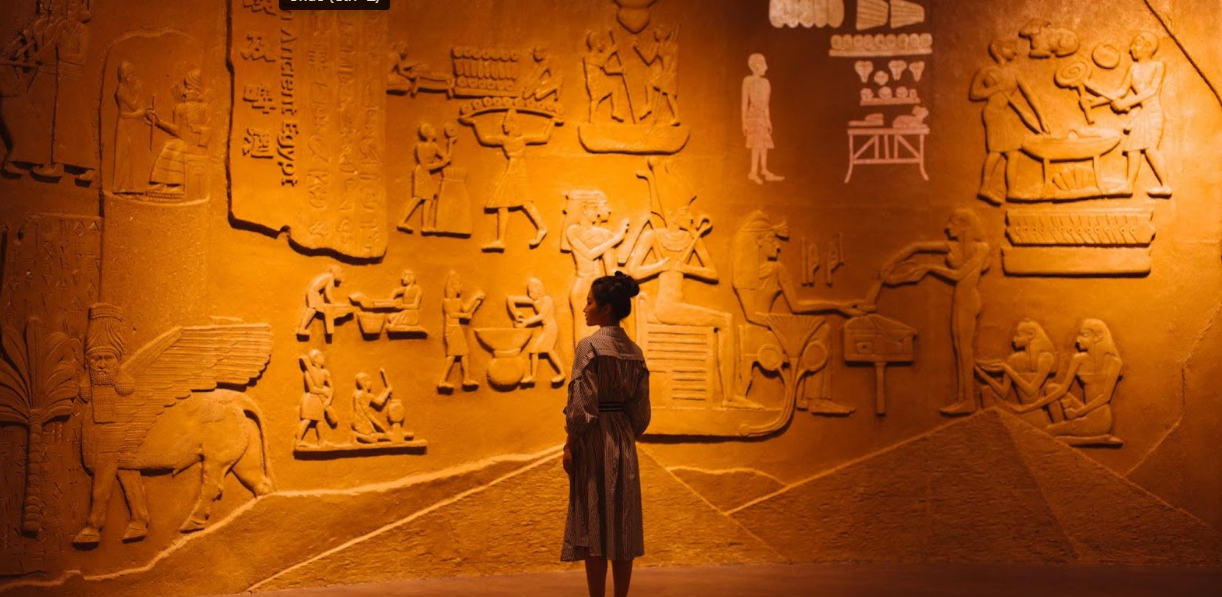What is the Study of Archaeology?
Archaeology, often perceived as a gateway to the past, serves a vital role in understanding the human story. If you’re contemplating whether to major in archaeology or are curious about why study archaeology is important, this article is for you.
In the upcoming sections, you can expect a deeper exploration of each of the five reasons that make studying archaeology a compelling choice. We’ll delve into how archaeology helps us unravel the mysteries of the past, its crucial role in cultural preservation, the interdisciplinary nature of the field, its influence on modern society and policy making, and the adventurous and discovery-filled career it offers.
This comprehensive overview by MSM Unify will provide a clearer understanding of the diverse impacts and opportunities that a career in archaeology presents.
5 Reasons Why You Must Study Archaeology
1. Unraveling the Mysteries of the Past
At the heart of the study of archaeology lies the quest to unravel the mysteries of bygone eras. Archaeologists play a key role in uncovering artifacts, ancient ruins, and forgotten civilizations, providing invaluable insights into human history and culture. This exploration not only satisfies human curiosity but also helps us understand our origins and development.
2. Contributing to Cultural Preservation
One of the most compelling reasons to study archaeology is its role in preserving cultural heritage. Archaeologists work tirelessly to protect and conserve historical sites and artifacts, ensuring that future generations can learn from and appreciate these treasures. This aspect of archaeology is especially important in a world where modernization often threatens the existence of historical sites.
3. Interdisciplinary Nature and Diverse Skill Set
Archaeology is inherently interdisciplinary, combining elements of history, anthropology, geology, and even chemistry. By choosing to major in archaeology, you are exposed to a variety of methodologies and perspectives, which enriches your analytical and research skills. This diversity not only makes the field intellectually stimulating but also equips you with a versatile skill set applicable to various career paths.
4. Influencing Modern Society and Policy
Why is archaeology important in the contemporary world? The answer lies in its ability to influence modern society and policy-making. Archaeological findings often inform our understanding of environmental change, human behavior, and social dynamics, which in turn can guide policy decisions. Whether it’s by providing evidence for climate change or insights into sustainable living practices of ancient cultures, archaeology has a significant impact on today’s world.
5. A Career Filled with Adventure and Discovery
Lastly, for those with a sense of adventure and a passion for discovery, archaeology offers an unparalleled career path. Fieldwork in archaeology often involves travel to remote locations, outdoor exploration, and the thrill of unearthing something that has been buried for centuries. It’s a profession that promises new experiences, constant learning, and the excitement of revealing secrets of the past.
Top 10 Global Universities to Pursue Archaeology
|
Sr. No |
University |
Country |
Rank |
|
1 |
University of California- Berkeley |
California, United States |
#1 in North America |
|
2 |
Harvard University |
Massachusetts, United States |
#2 in North America |
|
3 |
Stanford University |
California, United States |
#3 in North America |
|
4 |
University of Michigan- Ann Arbor |
Michigan, United States |
#4 in North America |
|
5 |
University of Oxford |
UK |
#1 in Europe |
|
6 |
University of Toronto |
Ontario, Canada |
#5 in North America |
|
7 |
University of Washington- Seattle |
Washington, United States |
#6 in North America |
|
8 |
University of Cambridge |
UK |
#2 in Europe |
|
9 |
Columbia University |
New York State, United States |
#7 in North America |
|
10 |
Massachusetts Institute of Technology |
Massachusetts, United States |
#8 in North America |
Estimated Average Salary after Studying Archaeology
Let us learn about some of the career options after studying archaeology along with estimated average salary.
|
S. No |
Job Role |
Average Annual Salary (USD) |
|
1 |
Museum Technician |
41,559 |
|
2 |
Museum Curator |
48,717 |
|
3 |
Archivist |
52,227 |
|
4 |
Academic Researcher |
53,757 |
|
5 |
Social Researcher |
53,757 |
|
6 |
Principal Investigator |
55,527 |
|
7 |
Records Manager |
57,181 |
|
8 |
Geographic Information Systems (GIS) Specialist |
60,606 |
|
9 |
Cartographer |
63,233 |
|
10 |
Archaeologist |
63,728 |
|
11 |
Heritage Manager |
65,148 |
|
12 |
Historian |
69,996 |
In conclusion, the study of archaeology is much more than digging up old relics. It’s about preserving our heritage, understanding our shared human story, and applying this knowledge to better our future. If you’re asking yourself, “Should I major in archaeology?” consider these five reasons. They not only highlight why archaeology is important but also showcase the unique opportunities and experiences that come with this fascinating field of study.
FAQs
What is the primary objective of studying archaeology?
The main goal is to unravel the mysteries of past civilizations, uncovering artifacts and ruins to gain insights into human history and culture.
What makes archaeology an interdisciplinary field?
It combines elements of history, anthropology, geology, and chemistry, providing a diverse skill set and methodologies, and enriching analytical and research abilities.
How does archaeology influence modern society and policy?
Archaeological findings inform our understanding of environmental changes and human behaviors, guiding policy decisions and impacting contemporary issues like climate change and sustainable practices.












